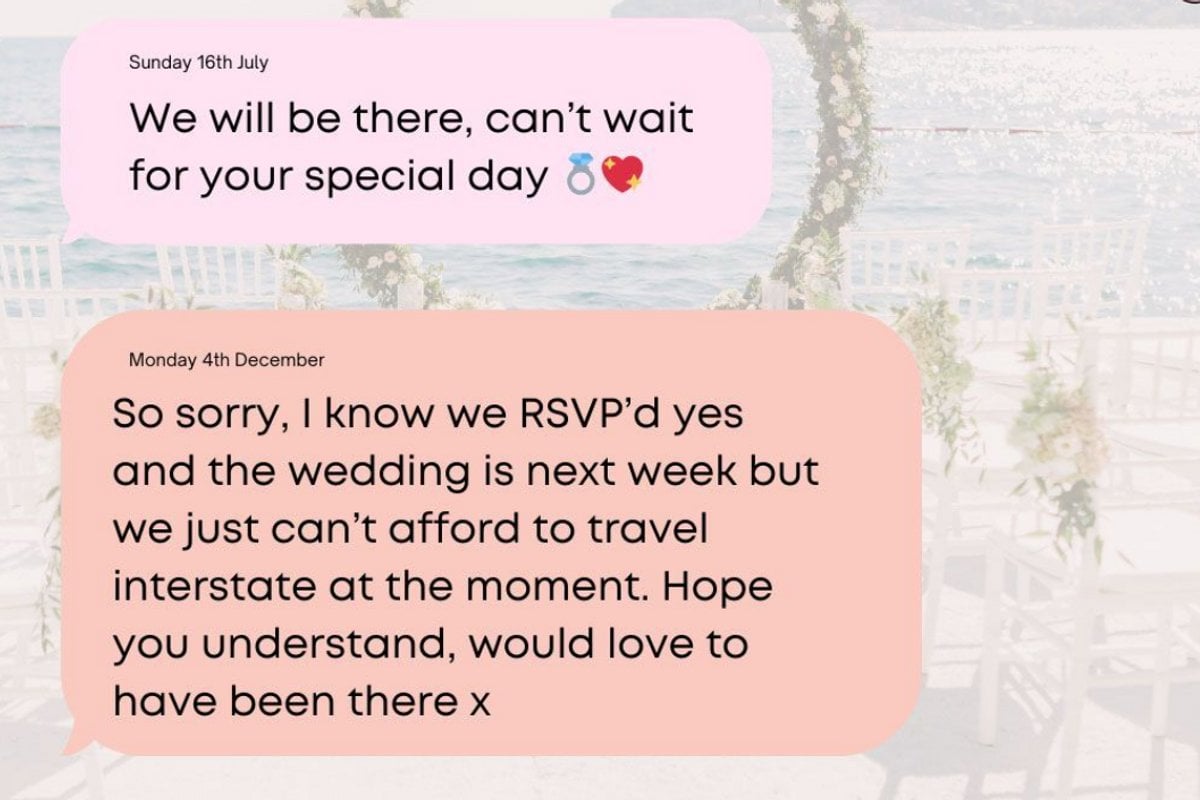
Once upon a time, an invitation to a wedding, birthday, or other special occasion meant the chance to celebrate with a loved one and enjoy a fun event with a bunch of friends.
These days, an invitation can bring on a bout of anxiety, with increasingly lavish special occasions costing guests a bucket load — in travel, food, drinks, transport — not to mention the gift.
I’ve been invited to events that cost anywhere from $100 to several thousands of dollars, and depending on your financial situation, even the former can be stressful — especially when the occasion is being hosted by someone close to you.
Watch: Friendship. Post continues after the video.
Destination weddings have become increasingly popular, costing both guests and hosts a fortune — so what happens when someone wants to go, intends to even, but has to drop out at the last minute?
One Australian bride has sent the internet into a tailspin after suggesting the guest should reimburse the host if they cancel at the last minute.
Posing the question to the podcast, She’s on the Money, the bride said ten guests had cancelled within a week of the wedding date, citing the cost of interstate travel as the reason for their change of heart.
“Is it reasonable to request that they cover these costs themselves?” she asked, explaining that all ten guests had previously RSVPd ‘yes’ to the wedding invitations which were sent more than 10 months ago.
Top Comments